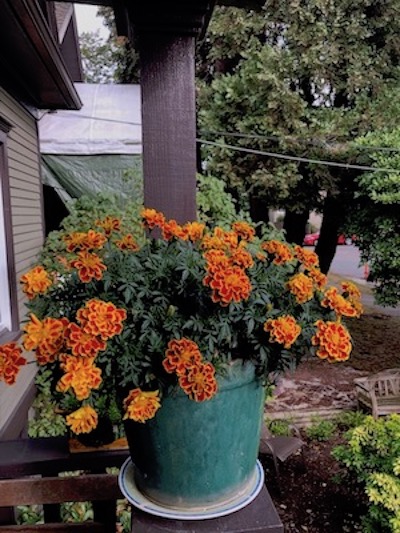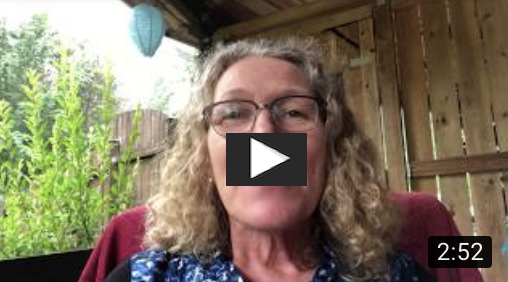If a child grew into adulthood according to early indications, we should have nothing but geniuses. Goethe
One of my favourite pastimes as a child was building blanket houses. I would gather sheets, blankets and safety pins, pull together sofas, chairs and side tables, rig up lamps with extension cords, and set myself up in my own cozy little house. I felt safe in there. It was calm, orderly and mine, even if the ownership was temporary. Chaos could be reigning all around me, but if I couldn’t see it then I didn’t need to engage with it.
Looking back I’m sure I would have been classified as a “highly sensitive child”. This website offers the following definition:
A highly sensitive child is one of the fifteen to twenty percent of children born with a nervous system that is highly aware and quick to react to everything. This makes them quick to grasp subtle changes, prefer to reflect deeply before acting, and generally behave conscientiously. They are also easily overwhelmed by high levels of stimulation, sudden changes, and the emotional distress of others. … But outspoken and fussy or reserved and obedient, all HSCs are sensitive to their emotional and physical environment.
Creating order in my physical environment has always been important to me. As a consultant, I work mostly from home. Before I can knuckle down and get at it, my environment needs to feel the same way my blanket house felt all those years ago. Calm, orderly, uncluttered. Only then does my interior world feel prepared and focused enough to go to work.
The emotional impact of being highly sensitive has been more challenging. Aspects of myself that I deemed unacceptable got parked long ago, but with this blog writing practice my internal world is getting some long overdue attention. This seems to be naturally bringing the external world more into focus as well.
This 2:36 minute excerpt from the BBC series Year After Year got my attention last week. Anne Reid tells it like it is about our individual and collective responsibility for the state of affairs we find ourselves in, on this beautiful planet we call home. Of course this isn’t news to me, but like my little girl in her blanket house—if I don’t see it, I don’t need to engage with it.
On the strength of that I started watching Our Planet on Netflix, a stunningly beautiful eight-part nature series narrated by David Attenborough. The producers are not afraid to be blunt about the situation either. This Guardian review gives a good synopsis of the series, that includes the following statistic: “In one human lifetime wildlife populations have fallen by an average of 60%. The stability of nature can no longer be taken for granted.”
My trip to Vancouver Island this week has been about reconnection. That’s included friends for sure, but more importantly it’s been about reconnecting with nature, and with parts of myself I left behind long ago. I miss the girl who was so at home in the natural world, and the one that wasn’t afraid to walk her own talk no matter what.
Which brings me back to genius. What early indications do I need to still cultivate that will help me be of service to the world? I’m not sure yet, but I’ll keep looking!
What did you love to do as a child? Are there expansions in your life, internally or externally, that you sense would bring more of your genius into the world? Let me know, I’d love to hear!



Hi Ames. I just read through your last two posts, ‘stuff is easy to come by’ and ‘reclaiming our genius’, and what I have to offer links those topics. Beyond that, it integrates many pieces you have offered the last 24 weeks, particularly death and dying. You know my death stories more intimately than almost anyone …
I start with ‘stuff’. Our stuffed garage remains so, despite the children and I holding its clearing as an intention each of the last 2 years. They are all here for 5 days in August and it’s time now for us as a family to do this work – dismantle, divide, keep or discard it’s contents as we we see fit. It is emotionally charged, and to do it together is a crucial part of our healing as a family.
While I’m writing this, my daughter in law called to ask for the gigantic armoire that has weighted down my living space for these same 2 years. At my request, she has agreed to also remove the ‘marriage’ bed that has carried a different and heavier weight. It will be replaced with a low-to-the ground queen bed that I’ll be shopping for this week. The removal of these two items on Thursday creates a lot more space than the space they occupied, and that leads to the question of ‘reclaiming our genius’.
Amy, you wrote: ‘Before I can knuckle down and get at it, my environment needs to feel the same way my blanket house felt all those years ago. Calm, orderly, uncluttered.’ Exactly. I loved to write as a child. I won peer voted composition competitions repeatedly in grade school. It was enough to write for myself (or for grades), but knowing what I wrote spoke to others, was so gratifying. While I’ve journaled most of my adult life, there is opportunity to hone my writing skills, receive feedback from my peers and fulfill a dream yo be published – whether it’s an article, collection of short stories, a novel, or a joint effort with my sister, Maureen and Elizabeth, to write about our experiences with death in the last 5 years.
You are doing good work here, Ames, and that serves all of us. With love, Julia
Thank you, Julia, for your full bodied comments. I’m thrilled there is some heavy ‘stuff’ moving out of your space! And I look forward to hearing the sequel after your kids have been there in August… It is especially exciting to hear that you are planning to focus on writing again. Wishing you well with ALL of that my friend! Love, Amy ❤️